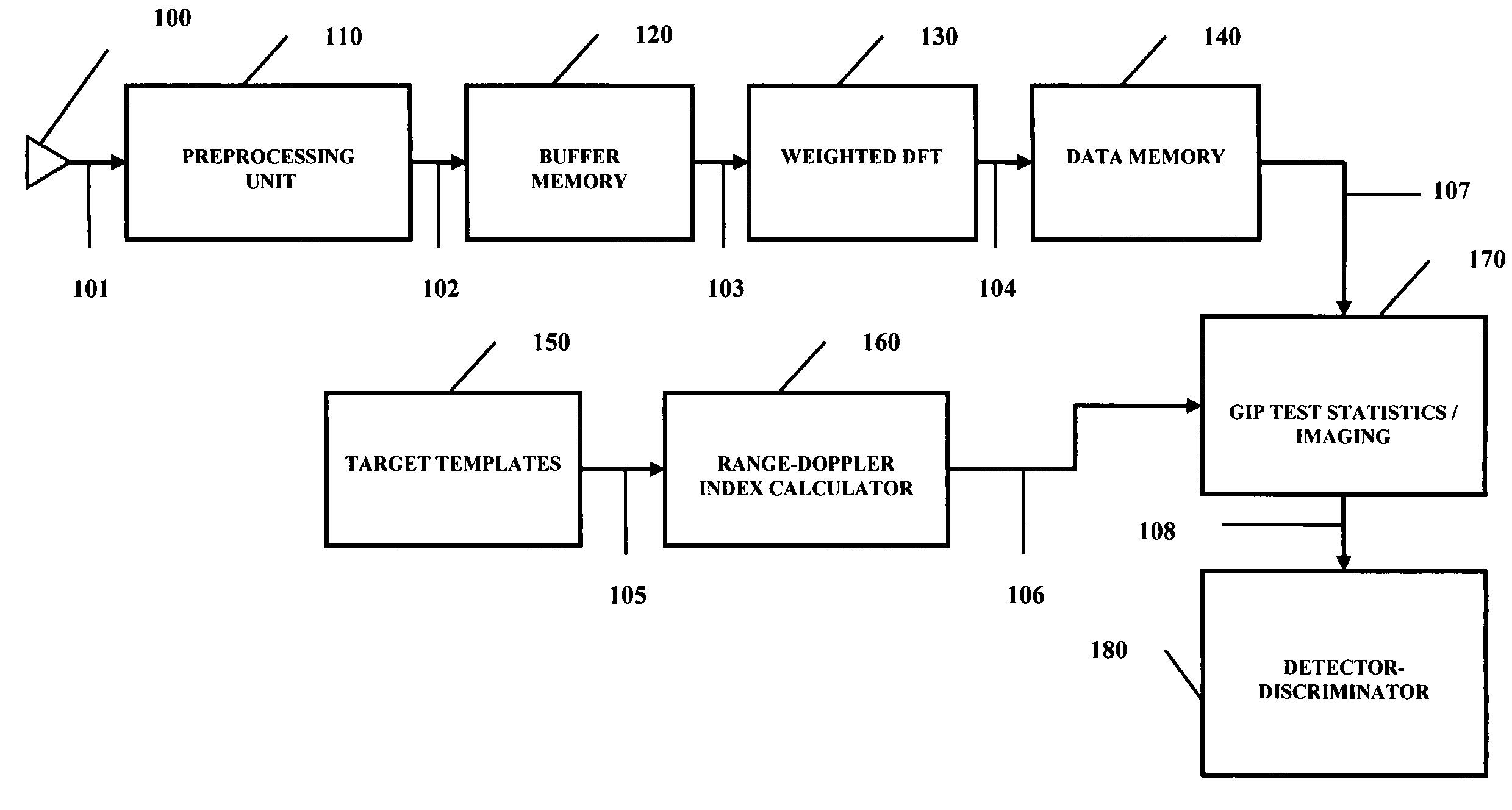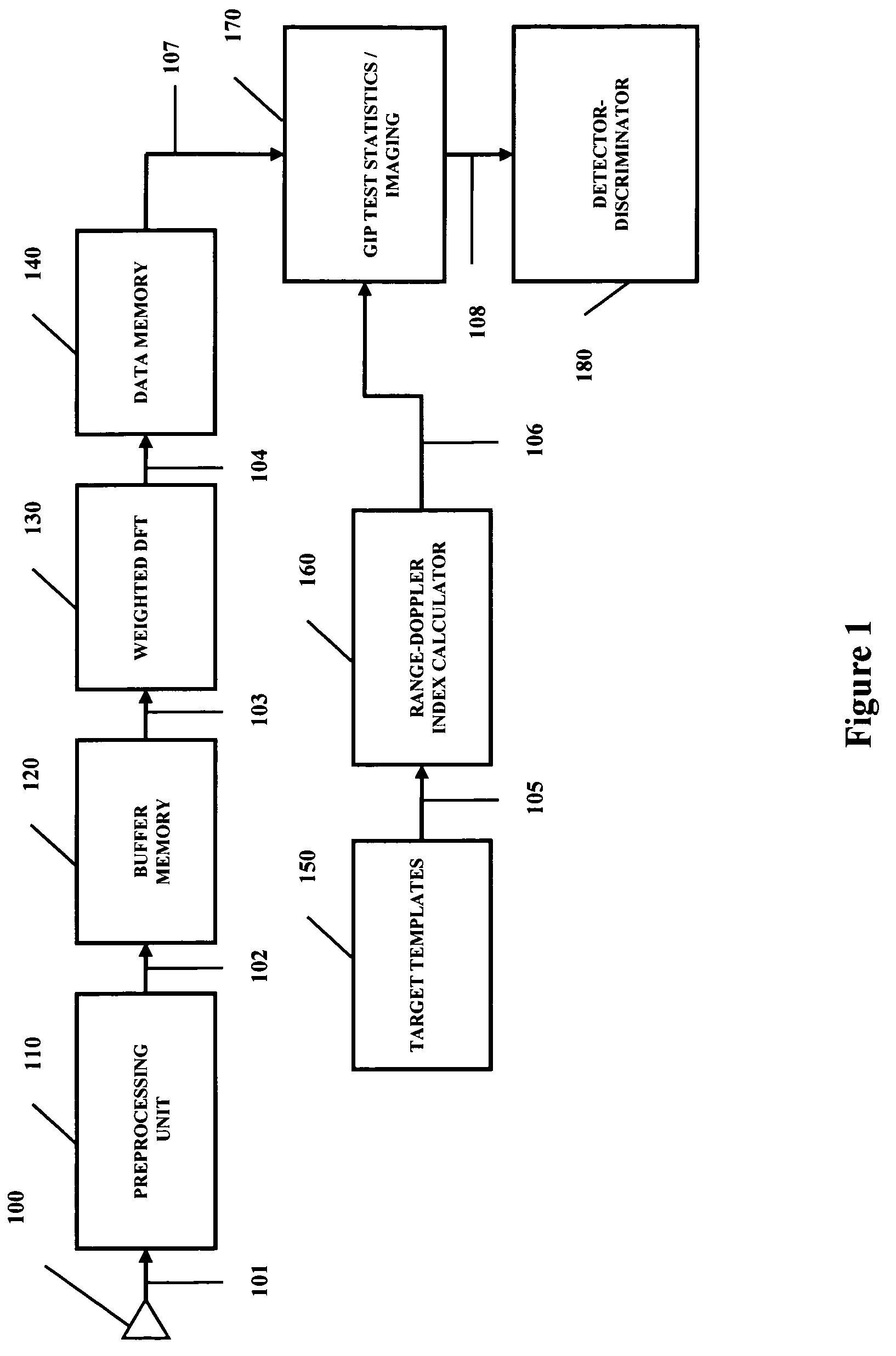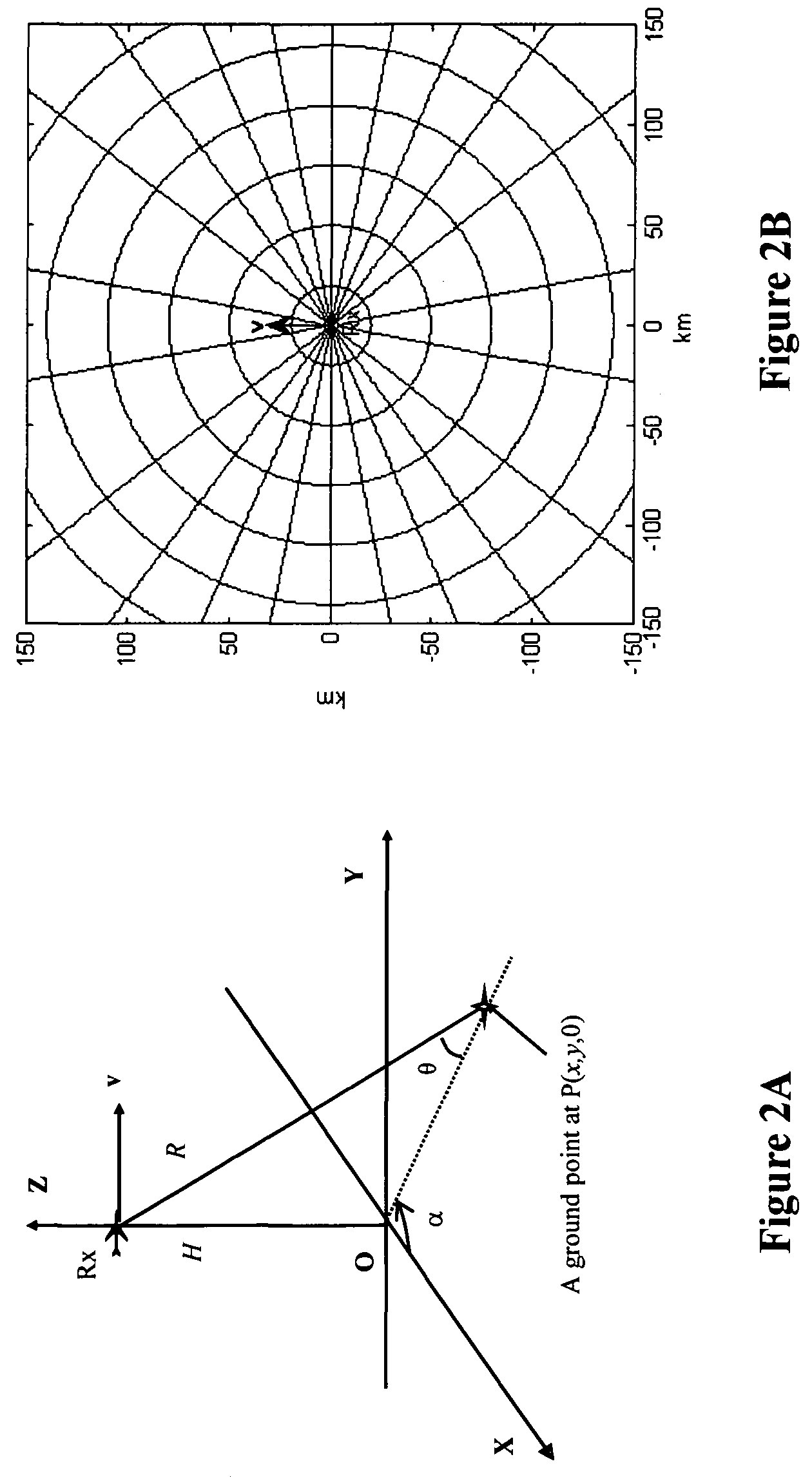Generalized inner product method and apparatus for improved detection and discrimination
a technology of inner products and methods, applied in the direction of instruments, measurement devices, and reradiation, can solve problems such as complex processes, and achieve the effects of improving detection process, improving detection probability, and improving target parameter estimation
Inactive Publication Date: 2011-03-29
THE UNITED STATES OF AMERICA AS REPRESETNED BY THE SEC OF THE AIR FORCE
View PDF13 Cites 17 Cited by
- Summary
- Abstract
- Description
- Claims
- Application Information
AI Technical Summary
Benefits of technology
The present invention provides a method and apparatus for detecting and discriminating among stationary or slowly moving objects, which can be resolved in multiple range-Doppler cells. The invention employs a combination of radar hardware, computer hardware, and computer software. The sensor detection process involves deciding whether the output of the sensor receiver is due to noise and clutter only or to a target return plus noise and clutter. For non-spread targets, the process consists of optimized clutter rejection followed by a process that determines whether a signal crosses a predetermined threshold level. For spread targets (resolved in range, Doppler or both), the process is more complex since there are multiple outputs of the sensor receiver to consider in the thresholding processing. The sensor declaration process consists of determining the type of target that is causing a particular return and estimating that target's parameters (location and size in various dimensions. The invention employs GIP-based processing which coherently combines the multiple returns from the spread target and adaptively rejects interference, resulting in improved detection and estimation of the target. The resulting signal-to-noise ratio is significantly better than that of each resolution cell separately and significantly better than that of these cells combined non-coherently. The invention also greatly improves the detection process for active sensors viewing spread targets and the declaration process for these same sensors. Coherent integration insures that the impact of adding each return from each resolution cell is maximized, resulting in optimum detection across the various components of the spread target and optimum estimation of the target extent in its various dimensions.
Problems solved by technology
For spread targets (resolved in range, Doppler or both) the process is more complex since there are multiple outputs of the sensor receiver to consider in the thresholding processing.
Method used
the structure of the environmentally friendly knitted fabric provided by the present invention; figure 2 Flow chart of the yarn wrapping machine for environmentally friendly knitted fabrics and storage devices; image 3 Is the parameter map of the yarn covering machine
View moreImage
Smart Image Click on the blue labels to locate them in the text.
Smart ImageViewing Examples
Examples
Experimental program
Comparison scheme
Effect test
case 1
[0089] σ1=σ2=σ3σ4=0.5 m2.
case 2
[0090] σ1=3σ2=10 σ3=40σ4=0.5 m2
case 3
[0091] σ1=10σ2=100σ3=1000σ4=0.5 m2
the structure of the environmentally friendly knitted fabric provided by the present invention; figure 2 Flow chart of the yarn wrapping machine for environmentally friendly knitted fabrics and storage devices; image 3 Is the parameter map of the yarn covering machine
Login to View More PUM
 Login to View More
Login to View More Abstract
Method and apparatus for improving the detection and discrimination of slow moving or stationary range-Doppler spread objects on or in close proximity to the ground (or sea surface). Invention detects, discriminates and separates radar returns from interference including ground clutter discretes via a coherent process for separating target returns from the myriad of received signals. Thus the method and apparatus improves the probability of detecting and declaring the presence or absence of an object at the same time that the probability of false declaration decreases. The method and apparatus may be applied to the processing of any over resolved object, including airborne radar.
Description
PRIORITY CLAIM UNDER 35 U.S.C. §119(e)[0001]This patent application claims the priority benefit of the filing date of a provisional application Ser. No. 61 / 211,478, filed in the United States Patent and Trademark Office on Mar. 30, 2009.STATEMENT OF GOVERNMENT INTEREST[0002]The invention described herein may be manufactured and used by or for the Government for governmental purposes without the payment of any royalty thereon.BACKGROUND OF THE INVENTION[0003]A stationary or slow moving object or objects has a similar spectral nature as the surface clutter from its location. Traditionally, it can only be detected by a moving platform radar (airborne, space-based radar, for example) if their returns sufficiently exceed those from the ground (clutter). This requires that its cross-section exceed that of the competing clutter patch established by the range and cross-range resolutions of the radar. In other words, the signal-to-clutter-plus-noise ratio (SCNR) must be significantly greater...
Claims
the structure of the environmentally friendly knitted fabric provided by the present invention; figure 2 Flow chart of the yarn wrapping machine for environmentally friendly knitted fabrics and storage devices; image 3 Is the parameter map of the yarn covering machine
Login to View More Application Information
Patent Timeline
 Login to View More
Login to View More Patent Type & Authority Patents(United States)
IPC IPC(8): G01S13/62
CPCG01S13/5248
Inventor WICKS, MICHAEL C.ZHANG, YUHONG
Owner THE UNITED STATES OF AMERICA AS REPRESETNED BY THE SEC OF THE AIR FORCE
Features
- R&D
- Intellectual Property
- Life Sciences
- Materials
- Tech Scout
Why Patsnap Eureka
- Unparalleled Data Quality
- Higher Quality Content
- 60% Fewer Hallucinations
Social media
Patsnap Eureka Blog
Learn More Browse by: Latest US Patents, China's latest patents, Technical Efficacy Thesaurus, Application Domain, Technology Topic, Popular Technical Reports.
© 2025 PatSnap. All rights reserved.Legal|Privacy policy|Modern Slavery Act Transparency Statement|Sitemap|About US| Contact US: help@patsnap.com



